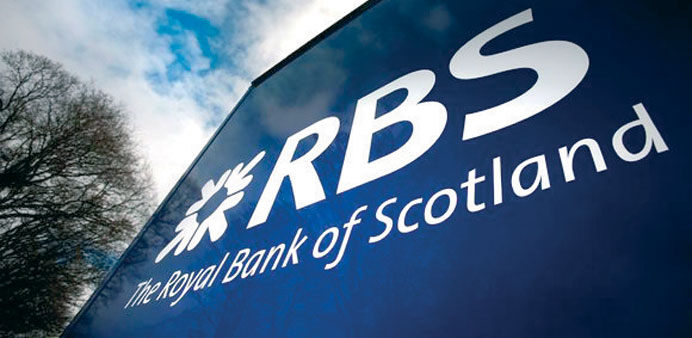|
Royal Bank of Scotland Group, ranked eighth for bond underwriting in the Middle East, said it is targeting increased returns from derivatives sales in the region as earnings from arranging debt sales and lending fall. |
RBS could add five to 10 percentage points to its return on equity in the Middle East through arranging more swap, options and forward contracts, Jacco Keijzer, the bank’s head of debt capital markets in the region, said in a recent interview in Dubai last month.
Competition among banks is intensifying as local lenders from Qatar, Abu Dhabi and Dubai challenge foreign institutions for bond and loan business, driving down fees, he said. At the same time, Gulf companies are also becoming more interested in derivative products to manage risk after the financial crisis.
If we “just keep running after bonds, it’ll be challenging to make budget,” Keijzer said. “We are actually investing quite heavily in our derivatives platform.”
The Edinburgh-based lender, which received the biggest banking bailout in the world in 2008 of £45.5bn ($69.4bn), posted a wider than expected full-year loss of £5.97bn after it set aside money to compensate clients wrongly sold insurance and interest-rate hedging products. RBS plans to shrink its investment bank to help boost capital after announcing plans last year to exit its cash equities and mergers and acquisitions business globally.
“I have actively been looking for a more balanced approach between bonds, loans and derivatives,” Keijzer said.
Derivatives are a financial instrument whose value is based on the performance of underlying assets such as stocks, currencies or exchange rates. Contracts can be traded on an exchange or in the so-called over-the-counter market.
Increasing competition among banks to win mandates to arrange bond sales has driven down fees this year, Keijzer said. Earnings for each bank from a transaction is “in single digits by now,” so that each bank is paid less than 10 basis points or 0.1 percentage point of the money raised in a sale, he said.
Bond sales from the Middle East and North Africa, which includes Saudi Arabia, the UAE and Qatar, surged 54% last year to a record $49bn as issuers took advantage of falling yields, according to data compiled by Bloomberg. HSBC Holdings and Standard Chartered were the two biggest bond underwriters in the Gulf in 2012.
RBS, Britain’s biggest government-owned lender, was among banks that arranged the sale of $1bn of Islamic bonds for the Dubai Electricity & Water Authority and a $1.5bn note offering of Abu Dhabi Commercial Bank this year. The lender is also advising on the fundraising of Emirates Aluminium, the company building the world’s biggest smelter in Abu Dhabi, which was said to have received $4.3bn loan commitments from banks in January.

